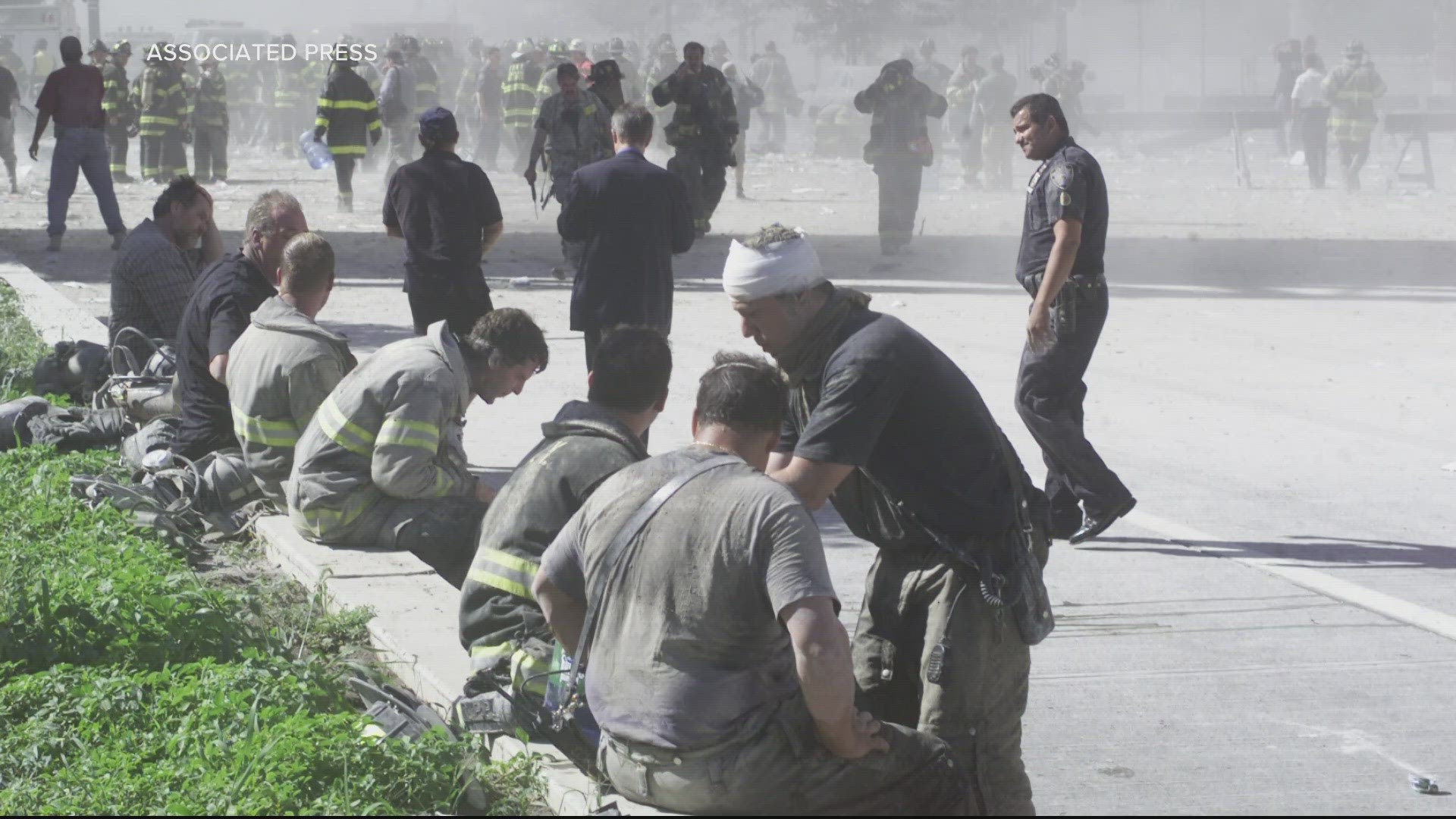WASHINGTON — Americans honored those who died during the terrorist attacks on 9/11 on Monday and thought about how the country changed that day, 22 years ago. Those who lived through it still feel the impact of the day and its enduring images, but that is especially true for the first responders who rushed to the scenes and the people who lived and worked nearby. According to the data, the aftermath of the attack has been as deadly as the act of terrorism.
SOURCES
WHAT WE FOUND
Nearly 3,000 people died on September 11, 2001. Members of Al Qaeda hijacked four planes and crashed them into two towers of the World Trade Center in New York City; the Pentagon in Arlington, Virginia; and a field in Shanksville, Pennsylvania.
In addition, many people suffered from breathing problems, cancer, PTSD, anxiety, and more brought on by the attacks and the chemicals released into the air in their aftermath.
The CDC's National Institute for Occupational Safety and Health runs the World Trade Center Health Program, which supports anyone who got sick as a result of being near Ground Zero.
More than 100,000 people have enrolled, including more than 85,000 first responders and nearly 40,000 community members who either volunteered in the recovery effort or lived, worked, or attended school near Ground Zero.
The New York City Police Department lost 23 officers on 9/11. But it lists 323 who have died since then of 9/11-related causes.
According to the New York City Fire Department, 343 New York firefighters died on 9/11. Their union now says 341 have died of conditions they got because of the attacks.
In 2021, the Victims Compensation Fund, created by Congress to support the victims of the attack and their families, wrote in a report that “more people are now believed to have died of 9/11-related illnesses than were lost on September 11, 2001.”
That fund has paid more than $12 billion to more than 53,000 people.

